We The Origin was founded on the principles of sustainability, transparency, and equity. We are deeply concerned about the coffee price crisis and want to raise awareness by connecting the producers from the supply chain and the consumers of coffee. To tell the story from a farmer’s perspective, we started a new content series called The Origin Series: Behind the Beans. Last week, we had a meaningful and informative conversation with a Colombian producer and talked about various challenges in the specialty coffee industry (check out our previous blog post of the series here). Today, we are (virtually) traveling to Guatemala and speaking with Ronald Pivaral and Leah Theoharidis, representing Finca Los Manantiales.
A Coffee Dream in Guatemala
Finca Los Manantiales is located in one of Guatemala’s eight coffee regions, New Oriente, well known for its well balanced, full-bodied chocolate notes. Situated at the city of Jutiapa, 2.5 hours away from the capital city of Guatemala City, it owns 32 hectares of coffee land, which is equivalent to producing approximately 3 containers worth of coffee each year. The farm was founded by Ronald’s father, Adolfo Pivaral in 1997, and shifted its production from commercial to specialty coffee around 6 years ago. Today, it is producing a lot of varieties of coffee at the altitude of 1730-2000 masl (meters above sea level), such as Pacamara, Pacas, Pache San Ramon, Maragogype, Rume Sudan, as well as a recently planted Starmaya, just to name a few.
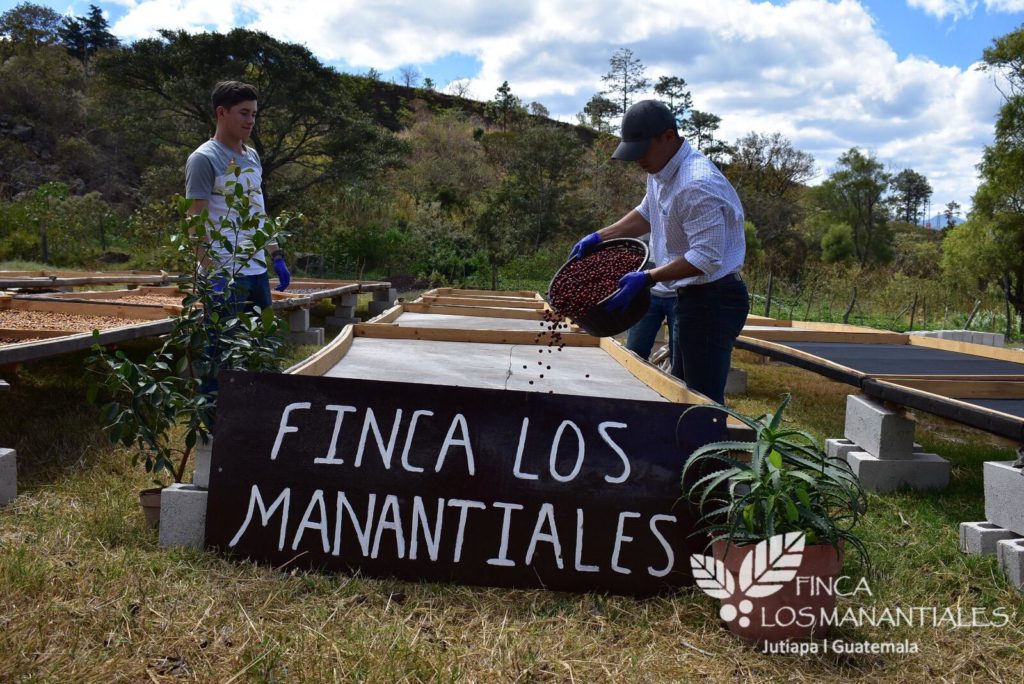
Ronald joined his father’s business at a later stage as the General Manager. Contrary to observations that teenagers are uninterested in the coffee business, Ronald’s background in agronomics was stemmed from his high school studies focusing on the environment. “I started to fall in love with this beautiful world – the plants, the animals”, he said, as he began to become increasingly involved in his father’s business, “trying to pitch him the little things I learnt at school”. Stating that the lack of education is “the biggest problem” within his community, it was obvious Ronald recognized the value of education. Indeed, he gained a scholarship to study at the prestigious Zamorano Pan-American Agricultural School in Honduras, and soon after enrolled in a Master’s program in Coffee Economics and Science, offered by Ernesto Illy in Italy.
“I am the first one who got a Master’s in my family. In the beginning, when I said ‘I want to do a Master’s in coffee’, people were like, ‘hey, stop studying and start working. The university is not going to give you money – you are spending money there. So I was like, ‘maybe education is not going to make me rich, but it’s going to give me a better life. Maybe I’m going to earn the same money that you are earning right now, but in an easier way.’ Now I can say I am seeing the fruits of this work.”
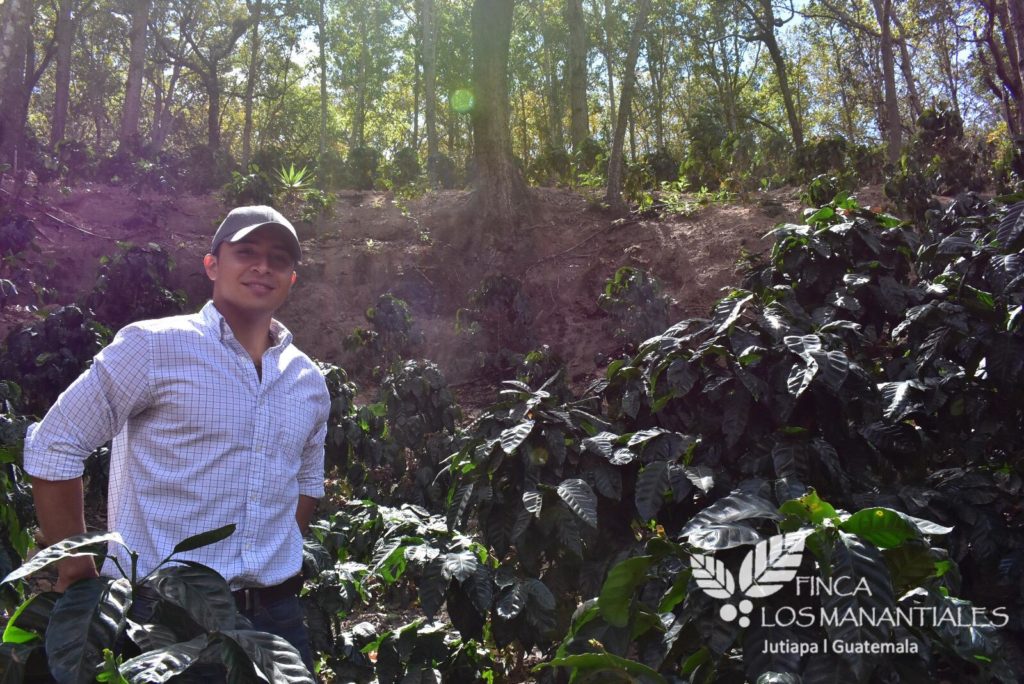
“I’m trying to build an empire here, not only for me, but for the whole community.”
As I said in my previous blog post for this Origin Stories series, “coffee is nothing without the people working tirelessly behind it”. Ronald agrees: “it’s not something I can do by myself – you need people. You need long-term relationships, someone who trusts and believes in you.” As such, he and his team have gone great lengths to ensure the wider community is being treated fairly and that no one falls behind. For instance, they try to hire all who are living around the farm, each with 1-2 hectares of land. In total, there 3 agrochemical suppliers, 80 farm employees, 4 farm administrators, 10 wet milling workers involved in Finca Los Manantiales’ operations, which provide a source of income. Moreover, the organization purchases fertilizers in bulk, on behalf of the farmworkers, in order to increase the economies of scale and thus reduce costs. If the farmworkers cannot afford the fertilizers, they would engage in other tasks to compensate for the free provision of fertilizers, hence eliminating the risk of running into debt problems, to some extent at least. It is no wonder Ronald is well-known in the neighbourhood: “I want to help them. Bringing in clients, helping them to know their cup profile, doing all that work for them as a service. Not trying to get rich, but just trying to help the community… I am becoming kinda famous here because of coffee. But it’s just luck.”
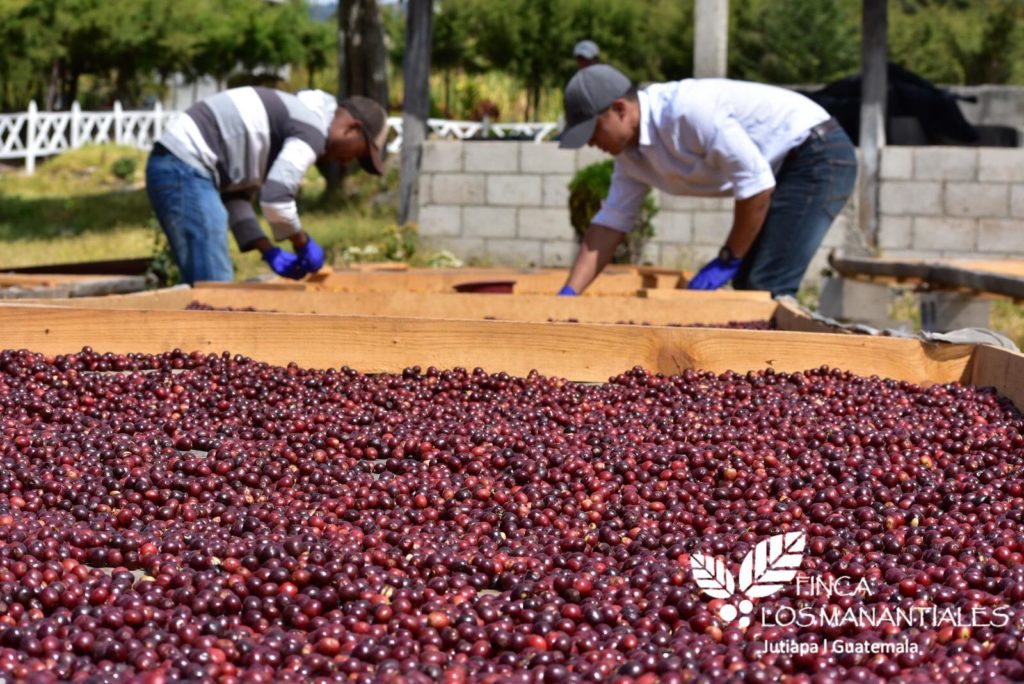
A part of Finca Los Manantiales’ work involves educating farmworkers to achieve sustainability. As mentioned before, Ronald believes the biggest underlying problem is a lack of education, where there is “nobody telling them what is correct and what is wrong”. “When I started to work with my father, the workers used to throw garbage in the fields. I was like, ‘come on, this is not the park or something where someone will come and pick up your garbage’.” And when Ronald instructed them to pick up the garbage and put them in a sack instead of throwing it away on the fields, “they got mad at me”.
Farm work aside, the lack of education also means one cannot reap the benefits further down the (very long) coffee value chain. The majority does not speak English, which, unfortunately or not, is the language spoken in the consumer countries of coffee – North America, Europe, etc. With this language barrier, according to Ronald, one cannot express oneself, cannot market and advertise their coffee, cannot build long-term business relationships with clients. Additionally, “producers here don’t know their costs of production. That’s the worst part.”
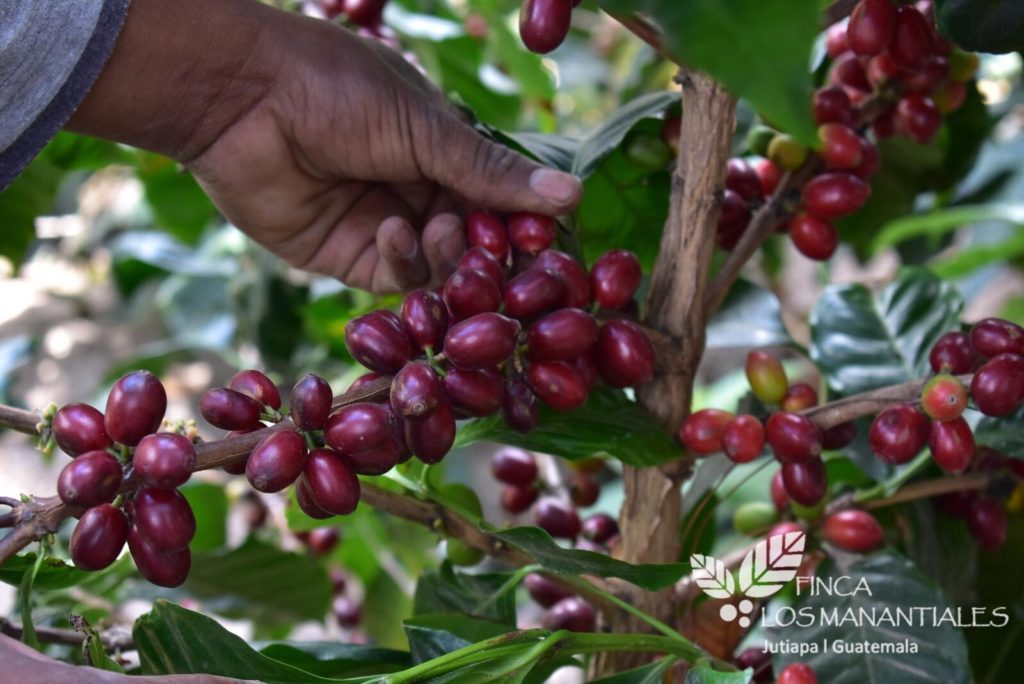
Sadly, tuition fees, transportation, the opportunity cost of time spent learning in a classroom instead of working on the fields to earn some cash – these all add up to make going to school an undesirable option. Children are literally being forced into labour in order to survive: today, about 263 million children and youth are out of school, including 61 million children of primary school age.
In Economics terminology, free education, which Ronald and his team are providing to the community, has “positive externalities”, meaning the benefits are not accrued only by those who received new knowledge. For example, when one starts picking up garbage, there would be less contamination in the river, leading to decreased sickness from drinking cleaner water, thus saving money from prevented medical treatment, which benefits everyone by and large.
“I am doing great things, but I can do more.”
RONALD PIVARAL
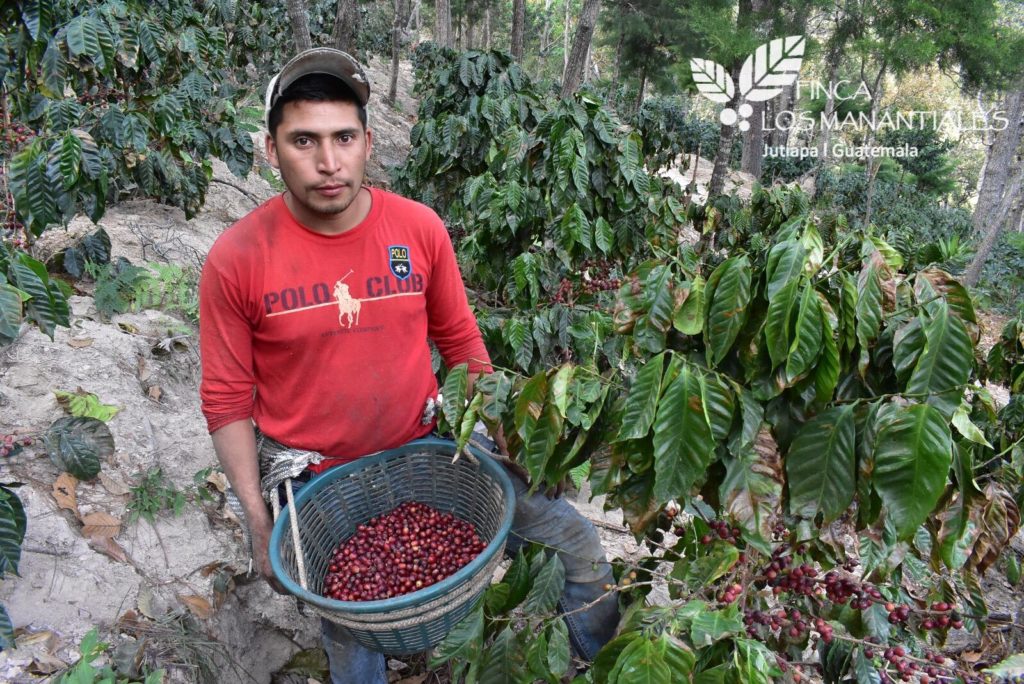
In his Master’s thesis, Ronald argued that building new or expanding current wet mills is an efficient way to alleviate poverty and make a positive impact on smallholder farmers’ lives. Now, without any context, this sounds just like another “generic” solution in the myriad of proposals put forth by think tanks and research institutions. However, as Ronald later explained, it became apparent that it is supported by good reasoning that makes this particular proposal attractive.
First of all, a common trend in coffee production in Guatemala is that many producers outsource their dry milling processes. “Even the biggest farm doesn’t have the dry mills”, Ronald said. As a result, the dry mills are concentrated in Guatemala City, where they are close to the port, thereby overcoming some logistical challenges. Second, and more importantly, the ownership of wet mills itself is a manifestation of economic inequality. “Because here we don’t have support; people who are rich are rich, people who are poor are poor – nobody is in the middle.” The usual procedure is that coffee farmers sell cherries, at ridiculously low prices, directly to wet mill owners who are “usually really rich people who have the money to build the wet mills”. 10% of profit margin is considered satisfactory and “lucky”, but even so, the prices farmers actually receive are shocking. Ronald commented that last year, farmers were selling their cherries at 20 cents (USD) per lb (pound). The underlying reason for this coffee price crisis is monopsony power, where there are many producers selling to only one available buyer, with the latter possessing market power to drive prices down. “You have basically one option – sell the coffee to them (the wet mill owners). If you have no contacts, nobody is going to buy your coffee.” This is not to mention the fact that delayed cashflow is another problematic nature of coffee production – one might receive payment up to 6 months after the coffee was sold. Therefore, Ronald’s suggestion to invest in capital and making wet mills accessible to more producers is logical and helpful. “People here are tired and sick of selling their cherries. They want to process their coffee to get better prices.” However, you might ask, where does that money to invest come from? Perhaps the answer will remain unknown.
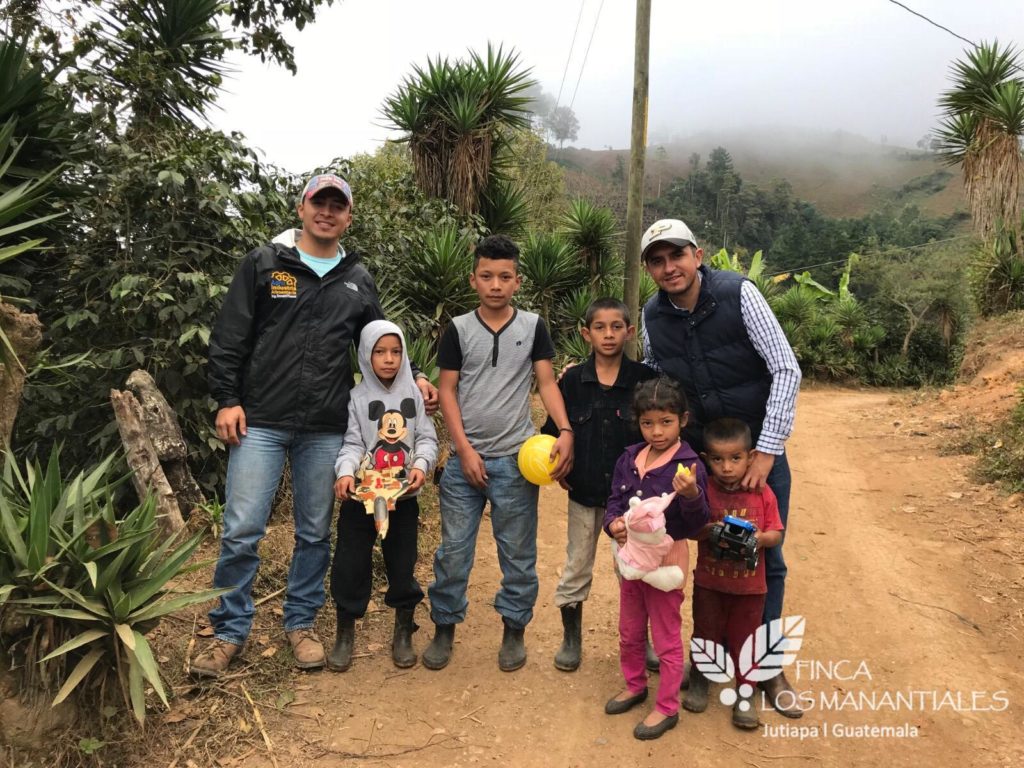
Solutions: Not All Are Holy Grails
There has been a lot of talk about the numerous certifications related to sustainability, including during our conversation with Ronald and Leah. Sustainable coffee, in general, is associated with organic coffee growing, shade-grown coffee, fair trade, and more. Although certifications may bring economic, environmental and social benefits, they are not without their limitations. For one thing, the costs of getting certified constitute a big obstacle. Producers must bear all the costs of getting new equipment and facilities in order to qualify for the certification, pay for all inspections and the certification license itself, whilst accepting the uncertainty that the reward, in the form of higher price, might not be enough to cover all the costs incurred throughout the process.
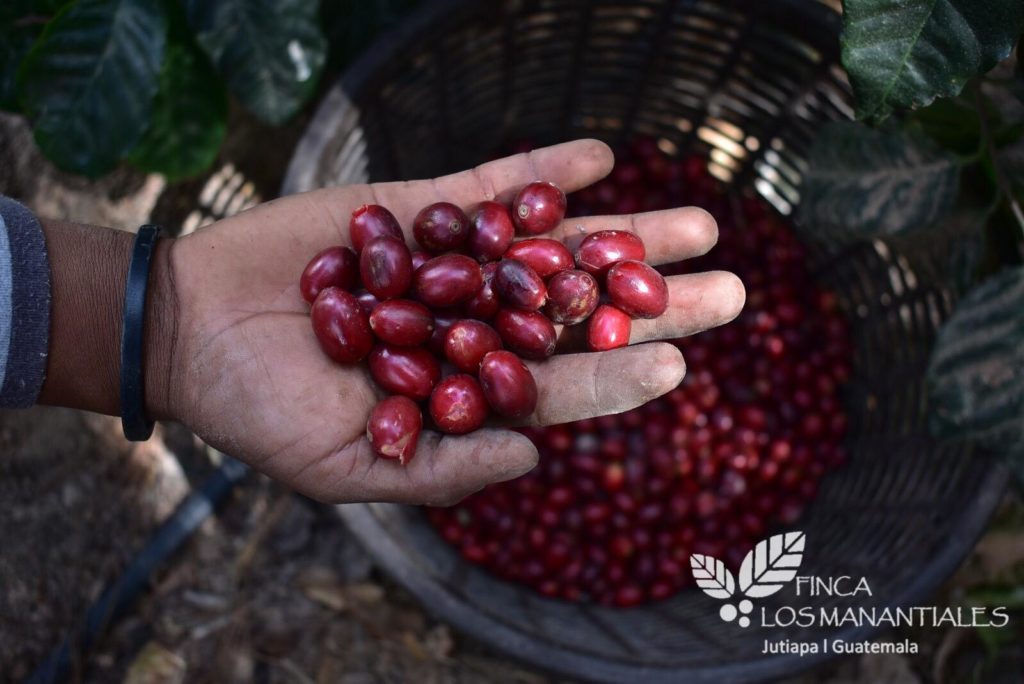
Without external pressure, Finca Los Manantiales is growing shade-grown coffee and planting coffee in natural forests, out of goodwill. The rationale behind this is clear when Ronald said, “I think certification is just a paper. It’s just a paper. But what really matters is what you are doing, what you believe, and what you want to do, in your community and in your coffee farm. And you have to (have) conscience about the environment, about the people. And that’s what we are doing – trying to take care (of) the environment, the forest, nature, everything.”
Click here to watch a video snippet of our conversation with Ronald where he shares his views of the value of certifications.
As a consumer of coffee, I admit that I sometimes unconsciously fall into the trap of thinking “certified coffee is better” without having sufficient evidence to back up my argument. A solution might sound ideal on paper, yet, when applied in reality, it might prove to be impractical, and, as a Panamian producer (who is also a member of the #WTOTeam) said, “it’s just not worth it”. Therefore, while we shall not deny the potential good certifications can bring, we shall also be careful not to penalise farmers who have yet to have a label attached to their coffees. Learning about the story behind their processes is a more holistic approach than to simply base a coffee farm’s worth solely on the existence of certifications.
What next?
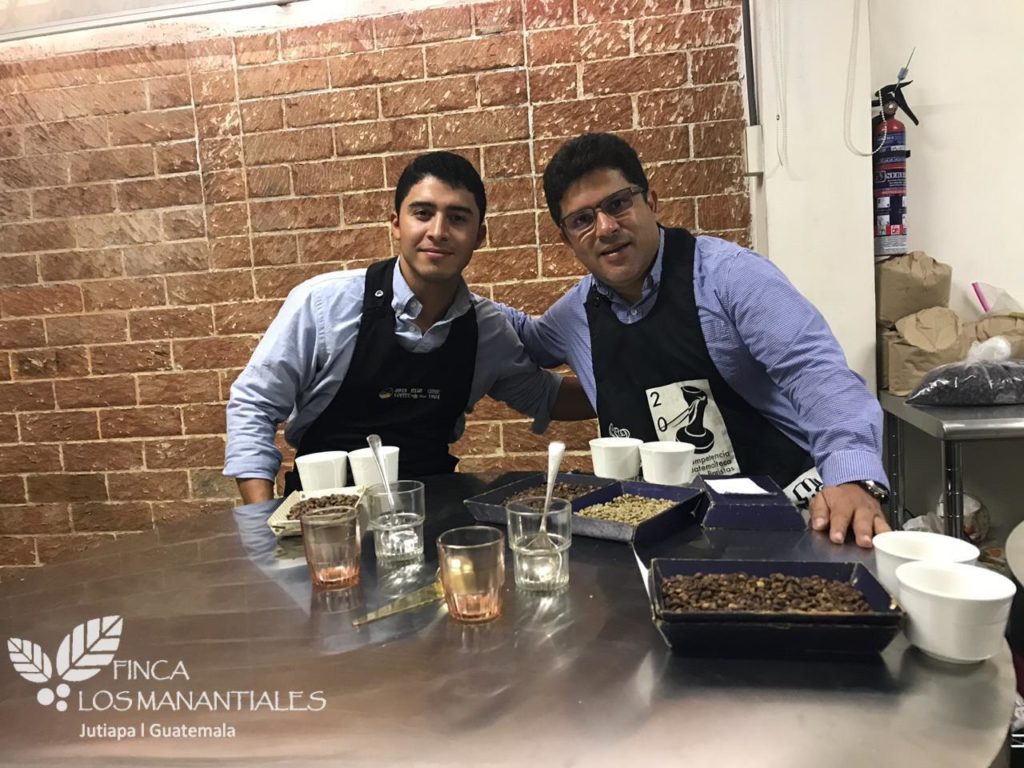
To some, Ronald’s plan to “build an empire” might sound over-ambitious. However, it is exactly the ones who are creative, idealistic and highly educated that drive changes. More than half of the world’s population are below the age of 30 – we shall never underestimate the power and influence of youth across the globe. After all, they are the ones who will be living on this planet for the next few decades. This resonates with Ronald’s long-term perspective: “I’m not thinking about now, I’m not thinking about 2, 3 years. I’m thinking about 10, 20 years”. Under the current status quo, I would say it takes courage to accept short-term compromises in order to ensure a sustainable future, with the paradigms of modernism and economic growth, at the expense of the environment, dominating the economic systems around the world since the Industrial Revolution. Ronald’s vision of creating an almost utopian coffee community, that is sustainable while at the same time inclusive to members, will come to fruition with perseverance and passion, 2 qualities which I clearly saw in him throughout our conversation.


